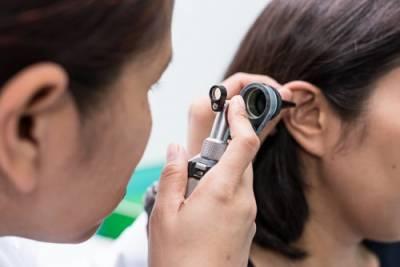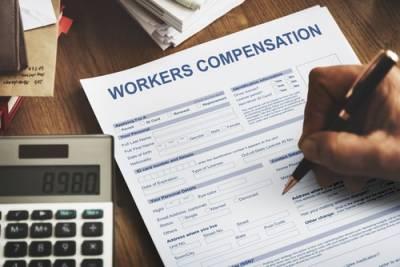Recent Blog Posts
What Types of Car Accident Injuries Are Covered by Workers’ Comp?
 Car accidents can happen at any time, and they can result in a variety of serious injuries. For those who drive as part of their job, the risks of accidents can increase because they spend more time on the road. When a car accident occurs while someone is working, they may be unsure about whether workers' compensation covers them. Fortunately, workers' comp provides benefits for any injuries that occur while an employee is working, as well as injuries arising from the work they performed. These benefits can help injured workers with medical bills, loss of wages, and other financial burdens that they may experience. Understanding the types of injuries that workers' compensation may cover can help employees ensure they receive the proper benefits following an on-the-job car accident.
Car accidents can happen at any time, and they can result in a variety of serious injuries. For those who drive as part of their job, the risks of accidents can increase because they spend more time on the road. When a car accident occurs while someone is working, they may be unsure about whether workers' compensation covers them. Fortunately, workers' comp provides benefits for any injuries that occur while an employee is working, as well as injuries arising from the work they performed. These benefits can help injured workers with medical bills, loss of wages, and other financial burdens that they may experience. Understanding the types of injuries that workers' compensation may cover can help employees ensure they receive the proper benefits following an on-the-job car accident.
Common Injuries in Work-Related Car Accidents
To receive workers' compensation coverage, a person will need to show that a car accident was work-related. Delivery drivers, construction workers, and others who operate vehicles on public roads during the course of their work will usually be eligible for benefits as long as an accident occurred while they were performing their job duties. Accidents that occurred while a person was commuting to or from work or while they were off the clock generally will not be covered by workers' compensation.
UPDATE: What Types of Workers’ Comp Benefits Can I Receive for Hearing Loss?
 Originally published: October 18, 2021 -- Updated: May 18, 2023
Originally published: October 18, 2021 -- Updated: May 18, 2023
Update: In addition to the issues described below, some workers may need to address concerns related to hearing loss that became worse due to conditions in their workplace. In cases where a person had a pre-existing condition, meaning that they already experienced some form of hearing loss before they began working for an employer or due to issues that were not related to their work, they may need to determine whether they can qualify for workers' compensation based on an aggravation of these issues.
While workers' comp will cover injuries or health issues that arose out of the work a person performed, there may be some question as to whether additional concerns related to hearing loss were work-related. For those who had some form of hearing loss, but their hearing loss became worse because of work-related factors, it will be important to demonstrate that the work they performed was responsible for the worsening of their condition. For example, a person may show that they were exposed to loud noises in the workplace and were not provided with sufficient hearing protection, and because of this, they experienced additional hearing loss.
How Long Will Workers’ Comp Pay Temporary Disability Benefits?
 People who are injured while working are likely to have many questions about how they can receive the proper medical treatment and how they will be able to meet their financial needs while they are unable to work. Fortunately, workers' compensation benefits are available in most cases where an employee has suffered a work-related injury. For those who cannot work while recovering from their injuries, temporary disability benefits will provide them with financial resources. However, workers who receive these types of benefits may have questions about how much they will receive and how long the benefits will last.
People who are injured while working are likely to have many questions about how they can receive the proper medical treatment and how they will be able to meet their financial needs while they are unable to work. Fortunately, workers' compensation benefits are available in most cases where an employee has suffered a work-related injury. For those who cannot work while recovering from their injuries, temporary disability benefits will provide them with financial resources. However, workers who receive these types of benefits may have questions about how much they will receive and how long the benefits will last.
Temporary Disability Benefits in California
If a work injury will prevent a person from working for at least three days, or if they spent the night in a hospital following a workplace accident, they can begin receiving temporary disability benefits. For those who are completely unable to work while recovering from their injuries, temporary total disability (TTD) benefits will pay a percentage of their lost wages. For those who are able to work at a reduced capacity while recovering and who are given the opportunity to work part-time or in a different position by their employer, temporary partial disability (TPD) benefits will pay a percentage of the amount their wages have been reduced by.
What Are the Most Common Causes of Injuries for Delivery Drivers?
 Working as a delivery driver comes with its own set of challenges. With long hours of driving and carrying heavy packages, it is not surprising that delivery drivers are at risk of getting injured on the job. These injuries can result in significant medical bills, lost wages, and other issues that can affect workers financially while also impacting their professional and personal lives. By understanding the potential causes of injuries and their options for receiving workers' compensation benefits, delivery drivers can be prepared for these situations.
Working as a delivery driver comes with its own set of challenges. With long hours of driving and carrying heavy packages, it is not surprising that delivery drivers are at risk of getting injured on the job. These injuries can result in significant medical bills, lost wages, and other issues that can affect workers financially while also impacting their professional and personal lives. By understanding the potential causes of injuries and their options for receiving workers' compensation benefits, delivery drivers can be prepared for these situations.
Reasons for Delivery Driver Injuries
There are numerous situations in which delivery workers may suffer serious injuries, including:
-
Vehicle accidents - Delivery drivers spend a lot of time on the road, which makes them more likely to become involved in motor vehicle collisions. These accidents can occur because of the negligence of other drivers or errors made by delivery drivers, and they may involve factors such as distracted driving, speeding, or fatigue. Drivers can take steps to prevent accidents, including avoiding dangerous behaviors like speeding or texting while driving. Vehicles should also be well-maintained and equipped with all necessary safety features, such as seat belts, airbags, and anti-lock brakes.
Can I Get Permanent Disability Benefits After a California Work Injury?
 Workplace injuries can happen to anyone at any time, and some injuries can be so severe that they may permanently affect your ability to return to work or pursue employment in jobs you have held in the past. While some injuries may result in total disabilities that prevent you from working at all, others may lead to partial disabilities that limit your employment opportunities. Fortunately, workers' compensation is available for people who suffer work-related injuries, and depending on the severity of your injury, you may be eligible for permanent benefits that will address disabilities caused by a work injury. By understanding how these benefits are addressed by the California Division of Workers' Compensation (DWC), you can take steps to protect your financial interests and move forward as you recover from your injuries.
Workplace injuries can happen to anyone at any time, and some injuries can be so severe that they may permanently affect your ability to return to work or pursue employment in jobs you have held in the past. While some injuries may result in total disabilities that prevent you from working at all, others may lead to partial disabilities that limit your employment opportunities. Fortunately, workers' compensation is available for people who suffer work-related injuries, and depending on the severity of your injury, you may be eligible for permanent benefits that will address disabilities caused by a work injury. By understanding how these benefits are addressed by the California Division of Workers' Compensation (DWC), you can take steps to protect your financial interests and move forward as you recover from your injuries.
When Can Shoulder Injuries Qualify for Workers’ Compensation?
 Work-related injuries can happen to anyone at any time, including in workplace accidents or due to repeated use of different parts of the body. Shoulder injuries are a common occurrence in California workplaces, and they can affect workers in numerous ways. These injuries may require treatments such as surgery, medications, or rehabilitative therapy, and medical expenses can add up quickly. They can also affect a person's ability to work, resulting in a potential loss of income. Fortunately, workers' compensation is available for those who have suffered work-related injuries. By understanding the different types of shoulder injuries that can occur in the workplace, injured workers can make sure they are taking the correct steps to receive workers' comp benefits.
Work-related injuries can happen to anyone at any time, including in workplace accidents or due to repeated use of different parts of the body. Shoulder injuries are a common occurrence in California workplaces, and they can affect workers in numerous ways. These injuries may require treatments such as surgery, medications, or rehabilitative therapy, and medical expenses can add up quickly. They can also affect a person's ability to work, resulting in a potential loss of income. Fortunately, workers' compensation is available for those who have suffered work-related injuries. By understanding the different types of shoulder injuries that can occur in the workplace, injured workers can make sure they are taking the correct steps to receive workers' comp benefits.
Common Work-Related Shoulder Injuries
When Are Independent Medical Reviews Used in California Workers’ Comp Cases?
 People who are injured while working will usually be able to receive workers' compensation benefits, which will address issues such as the costs of their medical treatment, the income lost while recovering from an injury, and job displacement. However, the process of obtaining workers’ comp benefits is not always straightforward. In some cases, disagreements may arise between an injured worker and their employer or an insurance provider over the medical treatments a person should receive. In such cases, independent medical reviews (IMRs) may be used by the California Division of Workers’ Compensation (DWC) to help resolve these disagreements.
People who are injured while working will usually be able to receive workers' compensation benefits, which will address issues such as the costs of their medical treatment, the income lost while recovering from an injury, and job displacement. However, the process of obtaining workers’ comp benefits is not always straightforward. In some cases, disagreements may arise between an injured worker and their employer or an insurance provider over the medical treatments a person should receive. In such cases, independent medical reviews (IMRs) may be used by the California Division of Workers’ Compensation (DWC) to help resolve these disagreements.
What Is an Independent Medical Review?
An independent medical review is a process that is used to resolve disagreements between injured workers and workers' compensation insurance companies about the treatments that should be provided and whether certain treatments are medically necessary. In an IMR, a medical professional will review a request for treatment and medical records and documentation about a patient's condition and provide an opinion on whether the requested care is medically necessary.
When Can I Receive Workers’ Compensation for an Occupational Illness?

Working for long hours, performing job duties that involve harmful substances, or working in hazardous environments can lead to various health risks, including occupational illnesses. Fortunately, the California workers' compensation system is designed to help employees who have been injured or become ill from their job. Workers' compensation benefits are available to employees who have suffered a work-related injury or illness. However, many people are not aware of when they are eligible to file for workers’ compensation due to an occupational illness.
Understanding Occupational Illnesses
First, it is important to know what an occupational illness is. An illness or disease that results from exposure to harmful chemicals, toxins, or other substances in the workplace may qualify as an occupational illness. Other illnesses or diseases may arise out of the work a person has performed. If an illness occurred while a person was working or was caused by the conditions in the workplace or work-related activities, it would be considered an occupational disease.
What Are the Most Common Causes of Injuries for Construction Workers?

Working in the construction industry comes with its fair share of hazards. Construction workers are exposed to multiple risks every day, and accidents and injuries are not uncommon. Construction sites are known for their hazardous settings, heavy machinery, and dangerous tools, and these factors can put construction workers at a high risk of injury. Fortunately, injured construction workers will usually qualify for workers' compensation benefits.
Common Construction Site Accidents Leading to Injuries
There are numerous issues that can put construction workers in danger of suffering injuries. Workplace accidents and injuries may occur due to:
-
Falls - The most common types of injuries on construction sites involve falls. Construction workers work at various heights, including on scaffolding, ladders, roofs, and elevated platforms. Falls from heights can occur due to defective equipment or failure to use safety measures such as harnesses or nets. Workers who fall from heights may suffer injuries such as broken bones, spinal cord injuries, head injuries, or other forms of serious bodily harm.
What You Need to Know About Workers' Comp for Leg and Knee Injuries

If you have been injured on the job in California, you may be entitled to workers’ compensation benefits. There are a variety of different types of workplace injuries that are covered under California workers’ compensation laws, including leg and knee injuries. You may be able to receive medical benefits, temporary or permanent disability benefits, and more. The specifics of your claim can vary depending on the severity of your injury and other factors. By understanding how knee and leg injuries are addressed in workers' comp cases, you can ensure that you will be able to receive the benefits you deserve.








